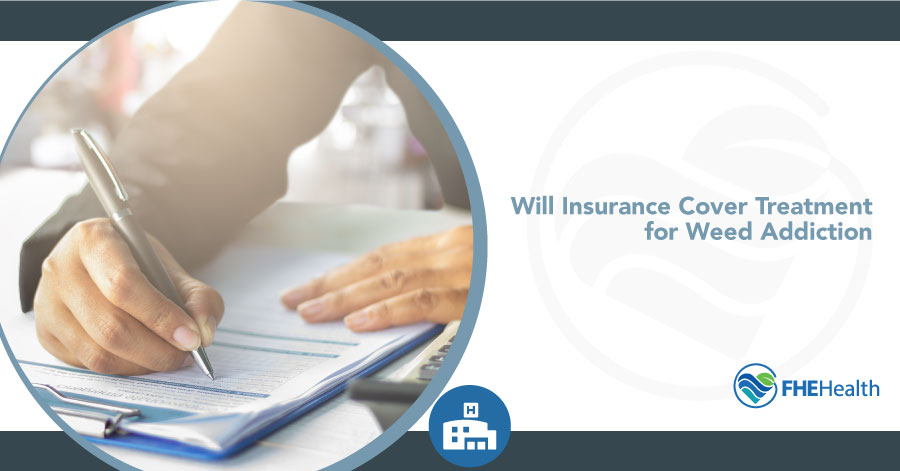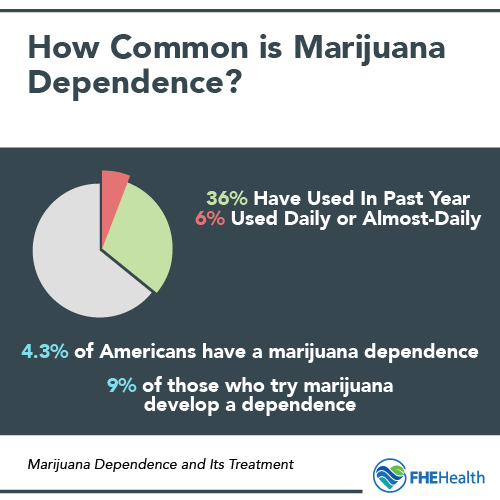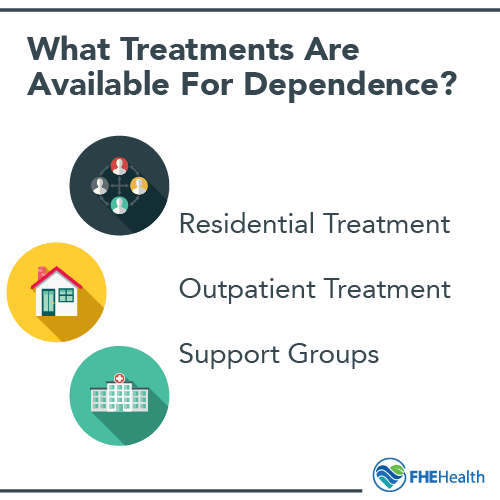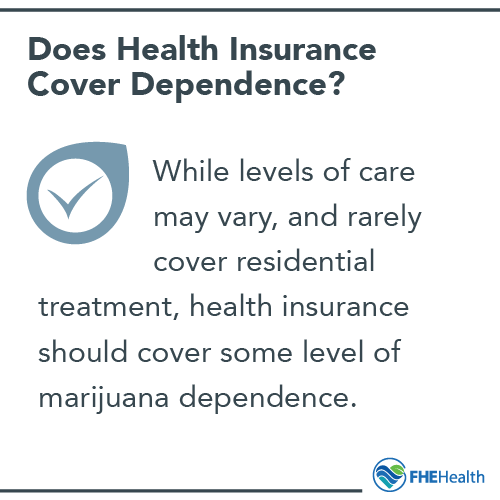
In recent years, medical and recreational marijuana has been legalized in many states. While this has created only a slight uptick in use, its legalization has fostered the idea that weed is not harmful or addictive, and is therefore something that you can easily quit on your own. Unfortunately, for many who realize their weed use is a problem, breaking the cycle of dependency is a huge undertaking that is difficult to overcome without professional guidance and support. But will insurance cover treatment for weed addiction? That’s a question that many of these same marijuana users find themselves asking…
The Prevalence of Marijuana Dependence
 According to the National Institute of Drug Abuse, weed is the most commonly used illicit drug, particularly among adolescents and young adults. A study conducted in 2015 showed that over 22 million people have used it within the last month, with the majority of users being men. In 2016, a similar study showed that nearly one in 10 8th graders reported weed use in the previous year. Among 12th graders, 36% had used weed in the previous year, and 6% said they used it on a daily or almost-daily basis.
According to the National Institute of Drug Abuse, weed is the most commonly used illicit drug, particularly among adolescents and young adults. A study conducted in 2015 showed that over 22 million people have used it within the last month, with the majority of users being men. In 2016, a similar study showed that nearly one in 10 8th graders reported weed use in the previous year. Among 12th graders, 36% had used weed in the previous year, and 6% said they used it on a daily or almost-daily basis.
Recent years have also seen an increase in medical emergencies potentially linked to weed use. The Drug Abuse Warning Network reported that in 2011, there were an estimated 456,000 drug-related emergency room visits in the United States in which weed use was recorded in medical notes. This is an increase of about 20% over 2009. While this doesn’t necessarily mean that those emergency room visits were directly tied to weed, it may suggest that increased use or a higher concentration of THC may pose health dangers.
Overcoming Marijuana Dependence Is a Difficult Journey
In some cases, weed use can lead to problems, particularly among those who began using marijuana before their eighteenth birthday. About 30 percent of people who use marijuana have a marijuana dependence disorder, meaning that they experience some withdrawal symptoms when they’re not taking the drug. Common withdrawal symptoms include:
- Irritability or difficulty stabilizing your mood
- Sleeping too much or being unable to sleep
- Decreased appetite
- Unusual or strong food cravings
- Restlessness
- Physical discomfort
In most cases, dependence on weed develops alongside a tolerance for it, meaning that you have to keep increasing the amount of weed you take in order to achieve the desired effect. In extreme cases, marijuana dependence disorder can turn into an addiction, and the user is unable to stop using the drug, even as they recognize that it’s disrupting their everyday life. Addiction is the result of the brain adapting to large amounts of the drug, which actually changes its rate of production and sensitivity to its own neurotransmitters. In other words, your brain comes to rely on the presence of marijuana to function normally.
Even if you don’t have a full-blown addiction to weed, weed dependency is very difficult to overcome on your own. The side effects can be very unpleasant and last up to two weeks. On average, adults who have regularly used marijuana for more than a decade have attempted to quit six times. Quitting is especially challenging for those who use marijuana to self-medicate mental, emotional or physical issues.
Treatments for Marijuana Dependence
 The good news is that if you’ve realized that your once-casual weed use has spiraled into something that you no longer have control over, there is help and recovery is possible. Several studies have shown that standard behavioral treatments that are used to address other chemical dependencies may help cut down on marijuana use. There are three main types of therapy that are used in treatment for marijuana dependence:
The good news is that if you’ve realized that your once-casual weed use has spiraled into something that you no longer have control over, there is help and recovery is possible. Several studies have shown that standard behavioral treatments that are used to address other chemical dependencies may help cut down on marijuana use. There are three main types of therapy that are used in treatment for marijuana dependence:
- Cognitive-behavioral therapy: This type of therapy addresses the connection between thinking patterns and behavioral patterns. It teaches people strategies to cope with internal and external stressors and other psychological problems in a healthy, constructive way.
- Contingency management therapy: This type of behavioral therapy provides positive reinforcements for desired changes in behavior. For example, a therapist might give you a cash reward if you pass a random drug test.
- Motivational enhancement therapy: This counseling approach focuses on strengthening the person’s desire for change. Rather than guiding their client through the recovery process, the therapist helps to motivate an internal desire to break the cycle of dependency. For those receiving treatment for marijuana dependence, this type of therapy is often used alongside cognitive behavioral therapy.
Currently, the FDA hasn’t approved any medications that can be used to treat marijuana dependence and cravings. Any prescription or over-the-counter drugs that may be recommended are intended to help you comfortably weather the physical side effects of withdrawal. For example, if you’re having difficulty sleeping during the withdrawal process, your therapist might suggest that you take a sleep aid.
Will Insurance Cover Weed Dependence?
If you’ve spent any time looking into rehab treatment for marijuana dependence, the sticker shock might be a roadblock to getting the help you need. Fortunately, under guidelines in the Affordable Care Act, most health insurance companies are required to cover outpatient addiction recovery services. While exact coverage varies from one health insurance policy to another, coverage for addiction services is as complete as any other healthcare service and typically includes:
- Addiction evaluation
- Outpatient counseling
- Medications used to treat addictions or withdrawal side effects
- Clinic visits
- Drug testing
- Home health visits
- Family counseling
 Because weed doesn’t have a traditional detox period like opioids or alcohol, inpatient rehab for weed is typically not seen as medically necessary and is therefore generally not covered by health insurance. However, you may decide that even intensive outpatient care isn’t enough to help you overcome dependency and that you would benefit from round-the-clock monitoring and accountability in a structured environment. In the event that you choose inpatient treatment—the best route for anyone with a marijuana use disorder—many trusted rehab facilities have scholarship programs, flexible payment options and sliding payment scales to make services accessible to anyone who needs them.
Because weed doesn’t have a traditional detox period like opioids or alcohol, inpatient rehab for weed is typically not seen as medically necessary and is therefore generally not covered by health insurance. However, you may decide that even intensive outpatient care isn’t enough to help you overcome dependency and that you would benefit from round-the-clock monitoring and accountability in a structured environment. In the event that you choose inpatient treatment—the best route for anyone with a marijuana use disorder—many trusted rehab facilities have scholarship programs, flexible payment options and sliding payment scales to make services accessible to anyone who needs them.
When used on a regular basis, marijuana has been associated with a variety of co-occurring disorders, such as depression, anxiety, psychosis, and schizophrenia. In many cases, those who use weed and have a mental illness that requires ongoing management are less likely to take prescribed medication and more likely to skip important medical appointments. This can lead to low educational achievement, unemployment and underemployment, social problems and isolation.
For heavy weed users, marijuana dependence is rarely the root problem; often, people use weed to self-medicate issues like depression, anxiety or stress. Many facilities that provide rehab treatment also treat co-occurring disorders or disorders that contribute to or result from weed dependency. Once you’ve addressed the real reason behind marijuana dependence, you can lay the necessary groundwork for breaking the cycle of dependency.






